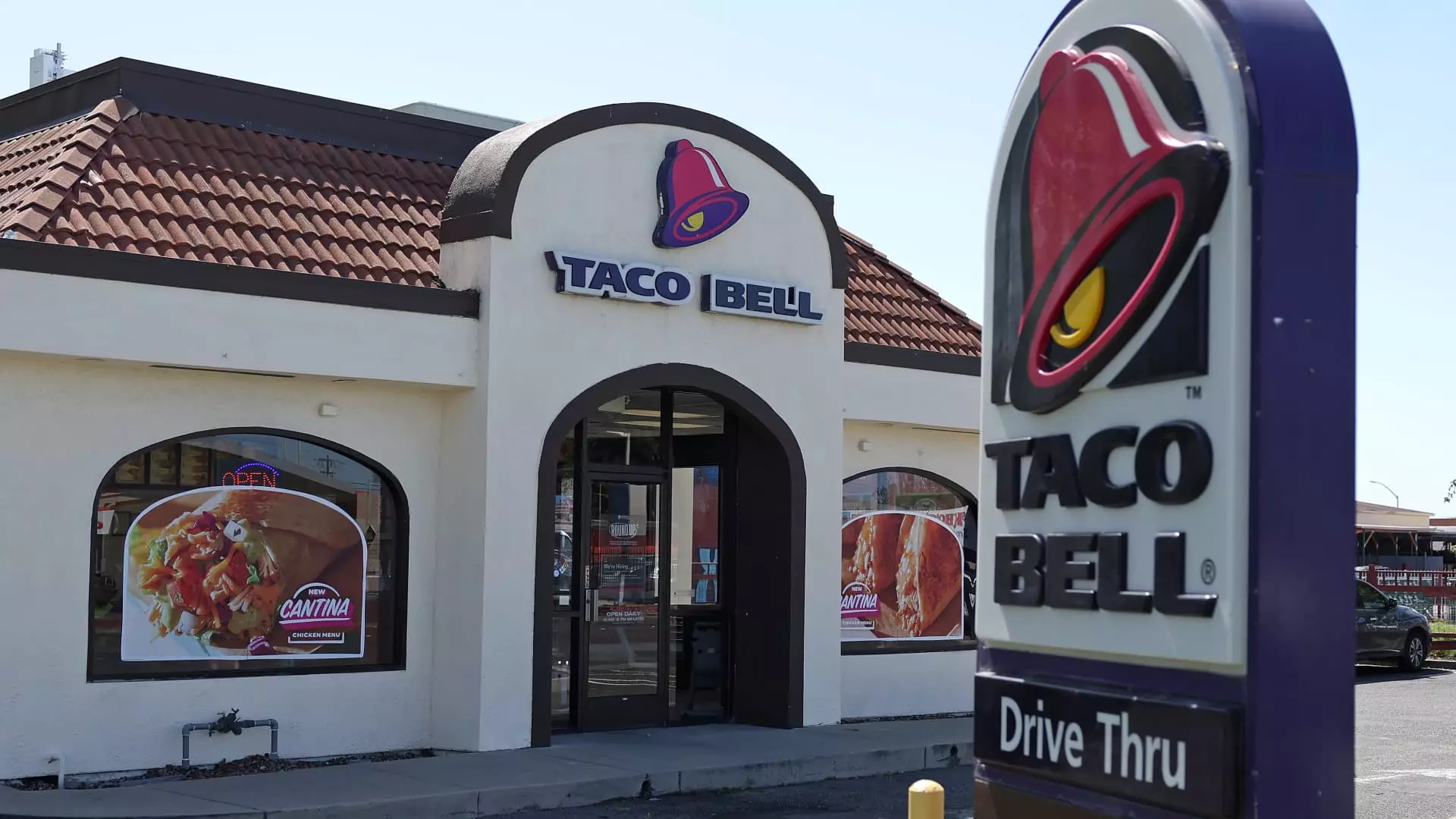The rapid spread of foodborne illnesses often sends shockwaves through the restaurant industry, prompting immediate action from chains striving to maintain their reputations and protect public health. In light of a recent E. coli outbreak linked to McDonald’s Quarter Pounders, Yum Brands, the parent company of Taco Bell, Pizza Hut, and KFC, has taken precautionary measures by removing fresh onions from a selection of their establishments. The move highlights the intricate web of food supply chains and the rigorous monitoring required to ensure customer safety.
Yum Brands’ decision to pull onions from their restaurants embodies a high level of caution amidst an emerging health crisis. In a statement issued to CNBC, a spokesperson for the company emphasized their commitment to food safety, stating, “As we continue to monitor the recently reported E. coli outbreak, and out of an abundance of caution, we have proactively removed fresh onions from select Taco Bell, Pizza Hut and KFC restaurants.” These words signal a thoughtful approach rather than a reactionary one, ensuring that preventative measures are implemented without unnecessary alarm.
While Yum Brands has not disclosed the number of locations affected by the onion withdrawal, there is significant awareness surrounding the uncertainty of the outbreak’s origins. The reliance on suppliers for fresh produce makes tracing the issue even more complex. Taylor Farms, noted as the common supplier for the onions implicated in the outbreak, also provides products to U.S. Foods, which has subsequently issued its own recalls related to the same batch of onions. This interconnectivity among suppliers undoubtedly complicates risk assessment for chains like Yum, highlighting the need for systematic checks at every stage of food preparation and distribution.
Similarly, Burger King has also taken a proactive stance by removing onions from 5% of its U.S. restaurants. This decision results from identifying that these onions originated from the same Colorado facility at the center of the recall. The chain’s spokesperson noted, “Despite no contact from health authorities and no indications of illness, we proactively asked our 5% of restaurants who received whole onions to dispose of them immediately.” This statement not only underscores the chain’s commitment to precaution but also opens the door to discussions surrounding the importance of supply chain transparency and integrity.
Burger King’s operational approach further illustrates the challenges fast-food chains face in maintaining food safety. By utilizing only whole, fresh onions that are processed in-house, they limit potential exposure to contamination. However, any single breakdown in this process—such as cross-contamination or mishandling—could have significant repercussions. Thus, while proactive disposal of onions reflects a responsible policy, it also begs the question: how well can chains manage quality control when multiple suppliers are involved?
The E. coli outbreak has not only affected individual chains like McDonald’s and Yum Brands but has provoked a broader dialogue on food safety across the industry. As of the latest reports, health authorities are investigating the outbreak, which has led to at least one death and 49 confirmed cases across ten states. The Centers for Disease Control and Prevention (CDC) continues to examine interviewed cases, with a significant number of individuals recalling their last meal involving McDonald’s Quarter Pounders, leading to a temporary halt of this particular item at many restaurants.
The investigation into the responsible food items has narrowed down to two key ingredients: the fresh beef and slivered onions. This scrutiny emphasizes the need for comprehensive traceability within food supplies. Though McDonald’s claims that their cooking practices sufficiently reduce the presence of harmful bacteria in beef, the public dialogue now centers on how much faith consumers should place in these assurances without transparent sourcing practices.
The recent E. coli crisis highlights the vulnerabilities inherent in the food supply chain and raises essential questions regarding consumer trust and safety in the fast-food sector. With proactive measures from industry leaders like Yum Brands and Burger King, the path forward involves careful auditing of food sources and a commitment to superior safety measures, ensuring that such outbreaks are effectively managed in the future.

